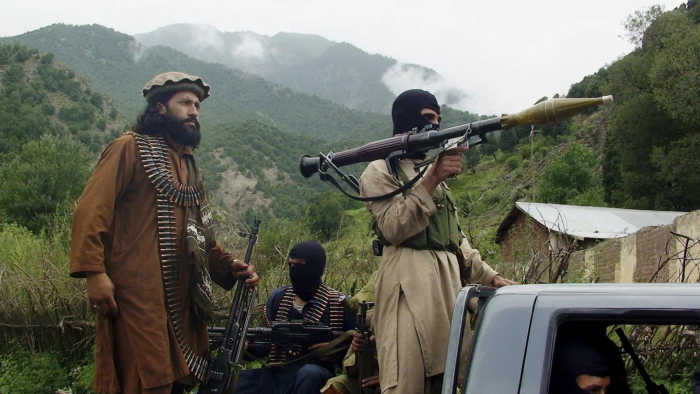Published 19:53 IST, June 28th 2024
Pakistan Battles Homegrown Terror Threats Under Operation Azm-e-Istehkam
This initiative follows a review of counterterrorism operations by Prime Minister Shehbaz Sharif, drawing inspiration from Pakistan's National Action Plan.
- Defence
- 3 min read
Islamabad: In October 2011, then-U.S. Secretary of State Hillary Clinton delivered a stern message to Pakistan, urging greater cooperation to dismantle the Haqqani network, notorious for its attacks in Afghanistan. “It’s like that old story—you can’t keep snakes in your backyard and expect them only to bite your neighbours. Eventually, those snakes are going to turn on whoever has them in the backyard,” Clinton stated during a joint news conference with Pakistan's Foreign Minister Hina Rabbani Khar. This prophetic warning has become painfully relevant as Pakistan now faces the dangerous backlash of its own militant proxies.
Prime Minister Shehbaz Sharif, following a review of counterterrorism operations, has sanctioned Operation Azm-e-Istehkam. This extensive military campaign seeks to neutralize domestic threats and manage armed fighters infiltrating Afghanistan. The operation draws inspiration from the National Action Plan, formulated after the devastating 2014 Peshawar Army Public School attack that claimed over 140 lives, mostly students.
The campaign not only focuses on military action but also includes socioeconomic initiatives aimed at alleviating public grievances and reducing extremist inclinations. “The campaign will be complemented by socioeconomic measures aimed at addressing genuine concerns of the people and creating an environment that discourages extremist tendencies,” stated a release from the Prime Minister’s Office (PMO).
The Insurgency's Roots
The Islamist insurgency in Pakistan's North-Western regions traces back to the post-9/11 era when al-Qaeda operatives fled Afghanistan and found refuge in Pakistan’s Federally Administered Tribal Areas (FATA).

The insurgency escalated in 2004 as the Pakistan Army's search for al-Qaeda fighters in Waziristan met with fierce resistance. This period saw the rise of Tehreek-Taliban Pakistan (TTP) in 2007, an amalgamation of local jihadi factions and foreign fighters with a mission to overthrow the Pakistani government and establish a Taliban-style regime.
Azm-e-Istehkam will be supported by comprehensive legal frameworks empowering all law enforcement agencies to effectively prosecute terrorism-related cases and impose severe penalties on terrorists. “The renewed and full-blown kinetic efforts of the armed forces will be augmented by full support from all Law Enforcement Agencies, empowered by effective legislation to address legal voids that hinder effective prosecution of terrorism-related cases and award of exemplary punishments to them,” according to the PMO statement.
Renewed Threats and Rising Violence
The National Action Plan, crucial in combating extremism, witnessed sluggish implementation post-2019. The fall of Kabul in August 2021 injected new life into the TTP, which benefited from fresh recruits, access to advanced weaponry, and a sanctuary under the Afghan Taliban’s protection. The resurgence of TTP activities led to a marked increase in terror incidents across Pakistan, particularly in Balochistan and Khyber Pakhtunkhwa.

In June 2022, following failed negotiations, a ceasefire was announced between the TTP and the Pakistani government. However, the ceasefire collapsed in November 2022, leading to a new wave of attacks orchestrated by the TTP. This period has seen a significant escalation in terrorist activities, with devastating impacts on civilian and military targets alike.
Pakistan's current plight underscores the danger of nurturing extremist groups for strategic gains. The very militants once seen as assets have turned into liabilities, wreaking havoc within the country. Operation Azm-e-Istehkam represents a crucial step in addressing this self-inflicted menace, combining military might with socioeconomic strategies to restore stability. As Pakistan confronts the venomous "snakes" in its backyard, the nation must adopt a holistic approach to ensure a peaceful and prosperous future, free from the scourge of terrorism.
Updated 20:02 IST, June 28th 2024
